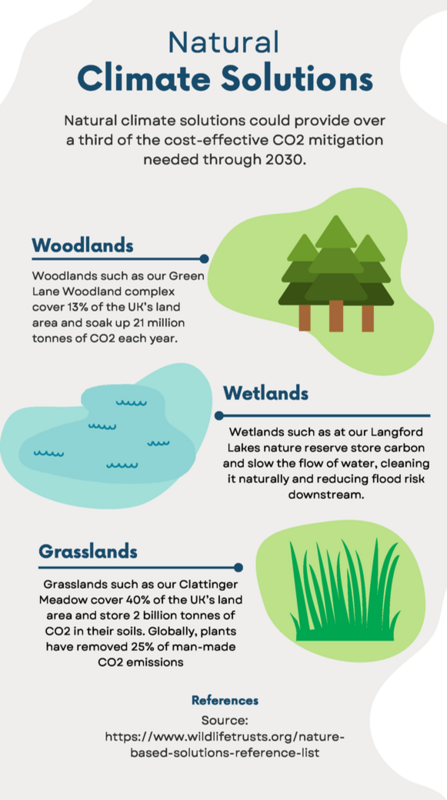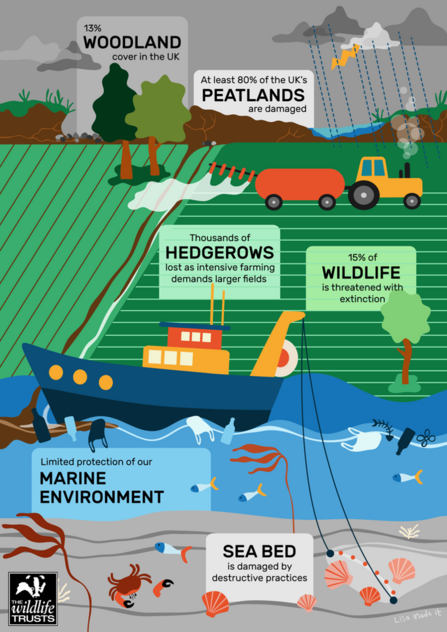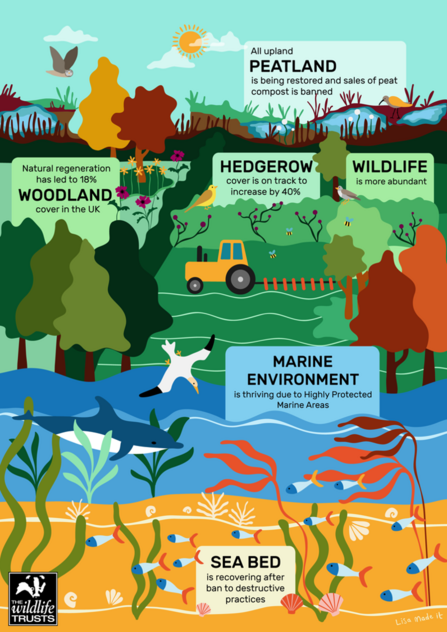We depend on nature and it depends on us.
Many natural systems play a critical role in limiting the effects of climate change, by absorbing huge amounts of carbon dioxide (CO2) and other greenhouse gases, while at the same time providing other important services such as clean water, flood mitigation, and food.
We also urgently need nature to recover, with more space for wildlife and greater biodiversity, so that natural systems can store much more carbon and wildlife can cope with the impacts that are already happening. In their current degraded state, many ecosystems cannot achieve their full potential for locking away carbon - and some may even emit more carbon than they take in, so it’s vital that wide-scale conservation takes place across the UK to repair the damage.
With the right management, natural systems could absorb at least one third of our carbon dioxide emissions each year.
How can the environment in Wiltshire contribute to this?

How are the Wildlife Trusts helping to achieve the recovery of nature?
The Wildlife Trusts have been working for decades to maintain our nature reserves as havens of biodiversity, protecting threatened species and providing sanctuaries for humans to improve their health and wellbeing by reconnecting with nature. We’ve ensured where possible that development has an overall positive impact on nature: influencing planning decisions, responding to thousands of planning applications every year, and campaigning against destructive development. We know that given half a chance nature can recover in incredible ways.
That's why the Wildlife Trusts have launched the ‘30 by 30 campaign’ – calling for 30% of the UK’s land and seas to be managed for nature’s recovery by 2030. Collectively, we aim to raise £30 million to begin to tackle, on a scale not seen before in the UK, the joint climate and ecological emergency resulting from the destruction of our natural world.
What our environment looks like today:

What it can look like with 30% of land and seas managed for nature's recovery:

What is the role for government and industry?
Nature’s recovery must be put at the heart of planning; construction and development must avoid unnecessarily damaging vital natural carbon stores, and must compensate for its impact on the natural environment.
We need:
- Planning laws which prioritise nature's recovery
- Local Nature Recovery Strategies which feed into a national Nature Recovery Network
- Biodiversity 'Net Gain'
- A system that pays farmers for delivering 'public goods' such as improved soil health
- Regulation of farming that prevents damage to ecosystems which are essential for future generations
We need to go above and beyond business as usual to restore our vital habitats on a larger, more ambitious scale, and to put back what we’ve lost. With investment and support from governments, businesses and local communities, we can create a step-change in the recovery of our natural environment, and forge a new balance with nature which guarantees sustainability and human health for generations to come.

